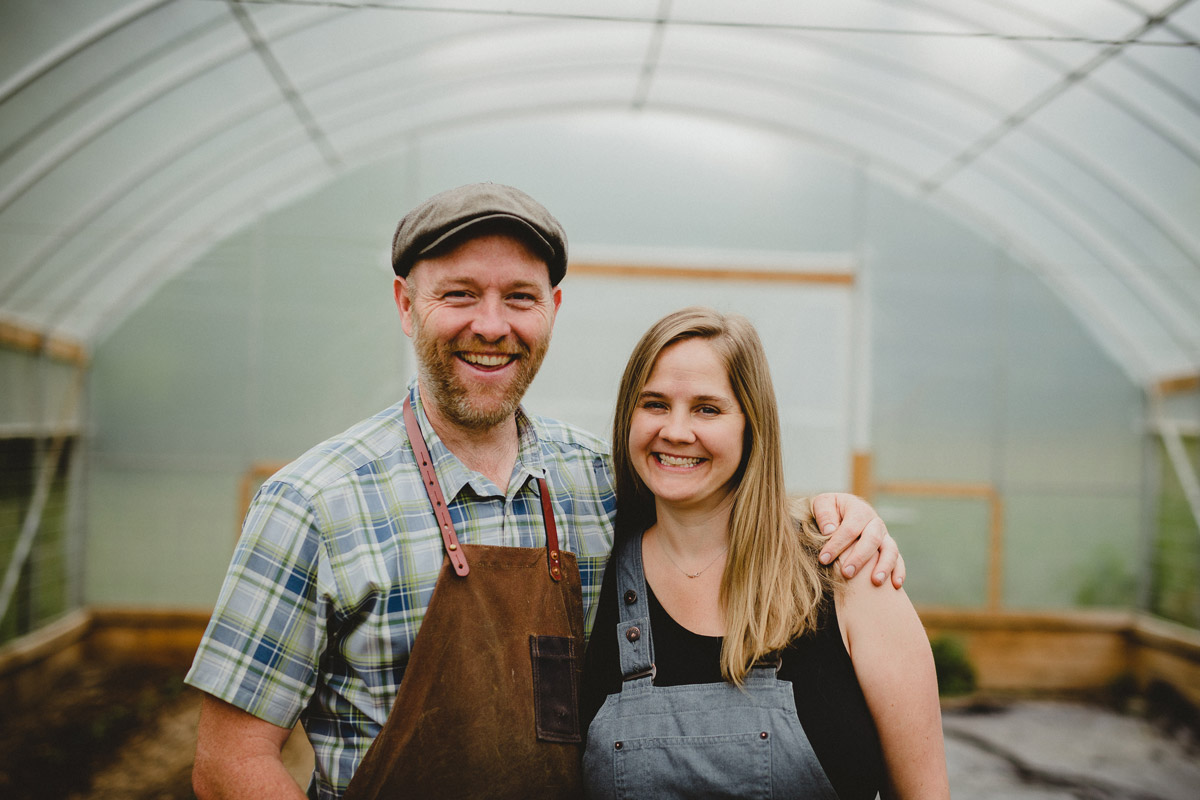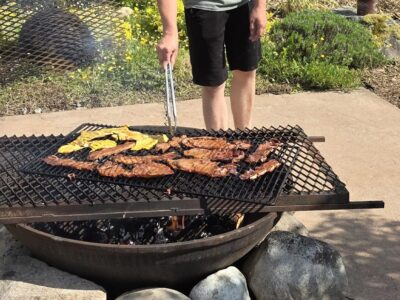If homesteading and gardening are hard work, then homesteading and gardening with children can seem downright impossible! We’re taking a realistic look at what homesteading with children looks like and how to succeed with Rebekah Rhodes.
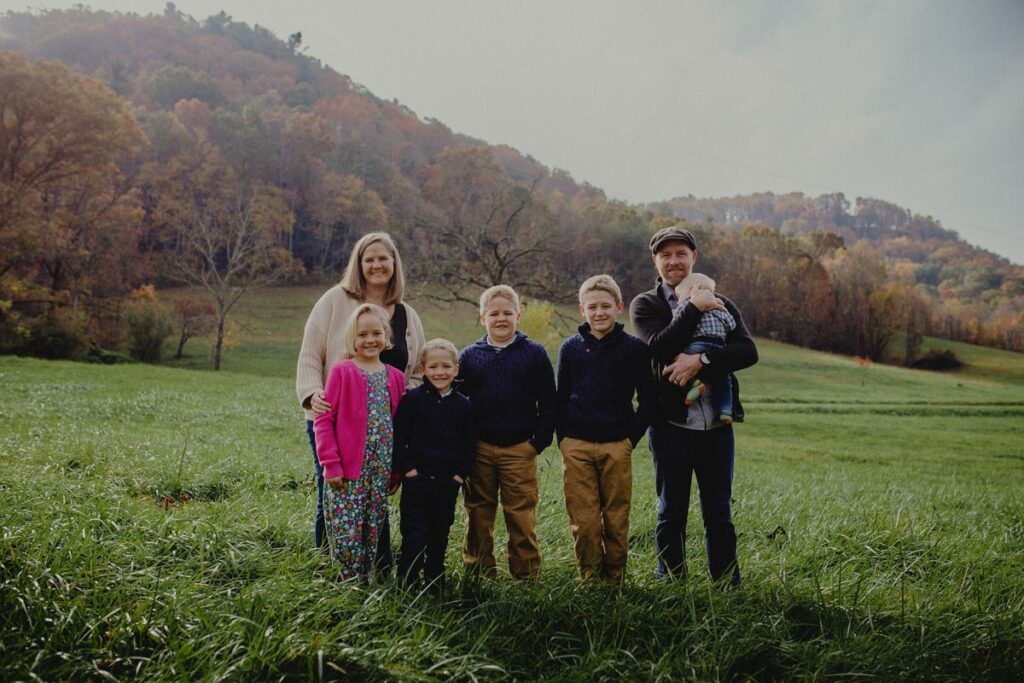
Many of you are probably familiar with Justin Rhodes or on YouTube the Justin Rhodes Show, but Rebekah inspires millions through their YouTube channel, their streaming app called Abundance Plus, as well as on her Instagram account.
Rebekah is in a unique stage of life where she has five children, ages 14-9 months (four sons and one daughter). Two of the boys are old enough to be fantastic contributors on the homestead, two are in training but still very helpful, and a baby who usually gets worn around the homestead in a carrier!
So she truly is speaking from her heart and experience in this podcast on homesteading with children.
This is episode #332 of the Pioneering Today Podcast and I’m proud to say it was sponsored by my books The Family Garden Plan and The Family Garden Planner, both of which will help you learn how to plant and harvest a year’s worth of food for your family.
Live Each Day With Grace
Rebekah’s biggest philosophy is to live each day with grace. While pregnant with her last child she was pretty sick and didn’t have a lot of energy for gardening, so she gave herself a lot of grace while sick and harvested produce from the garden when she could.
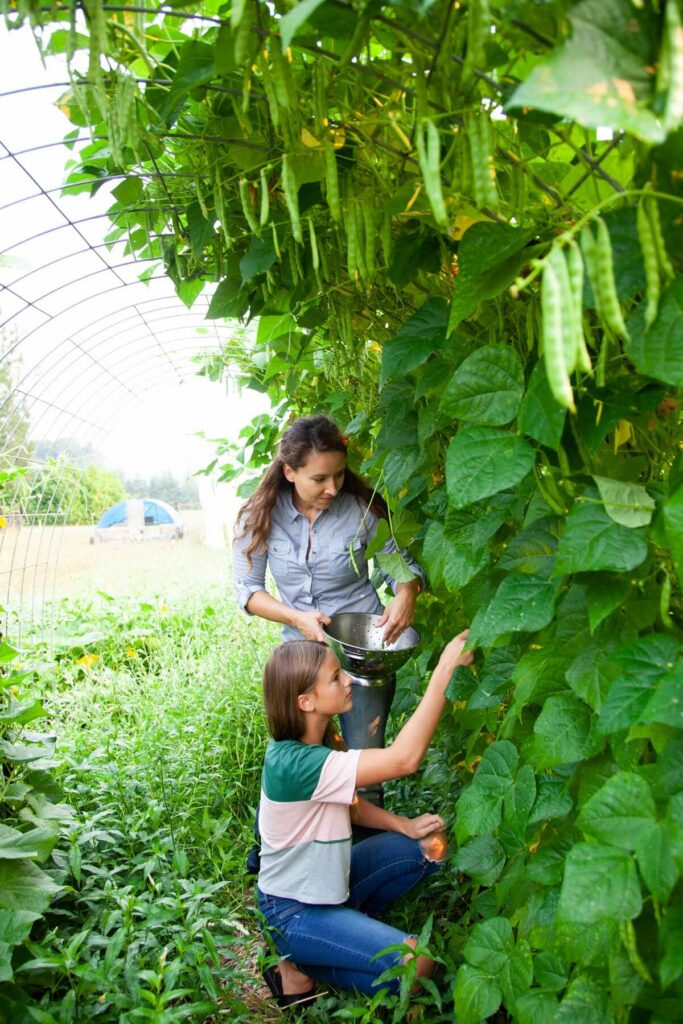
Change Expectations
Changing your expectations for the season you’re in is important. You may not be able to do as much as you did the year prior, but that doesn’t mean you’re “failing” at homesteading.
Rebekah shared how she planned to can some tomato sauce and got three quarts in when she had to stop because the baby needed her. She counted this as a win because it was three more jars than she had canned the year before!
Furthermore, sometimes you can look at the things that need to get done and find the tasks that take less prep. For instance, it’s much more labor-intensive to can tomato sauce than it is to can green beans.
So sometimes you can still get a lot accomplished, but they’re tasks that can be broken up into smaller portions, or tasks that are quicker and easier to accomplish.
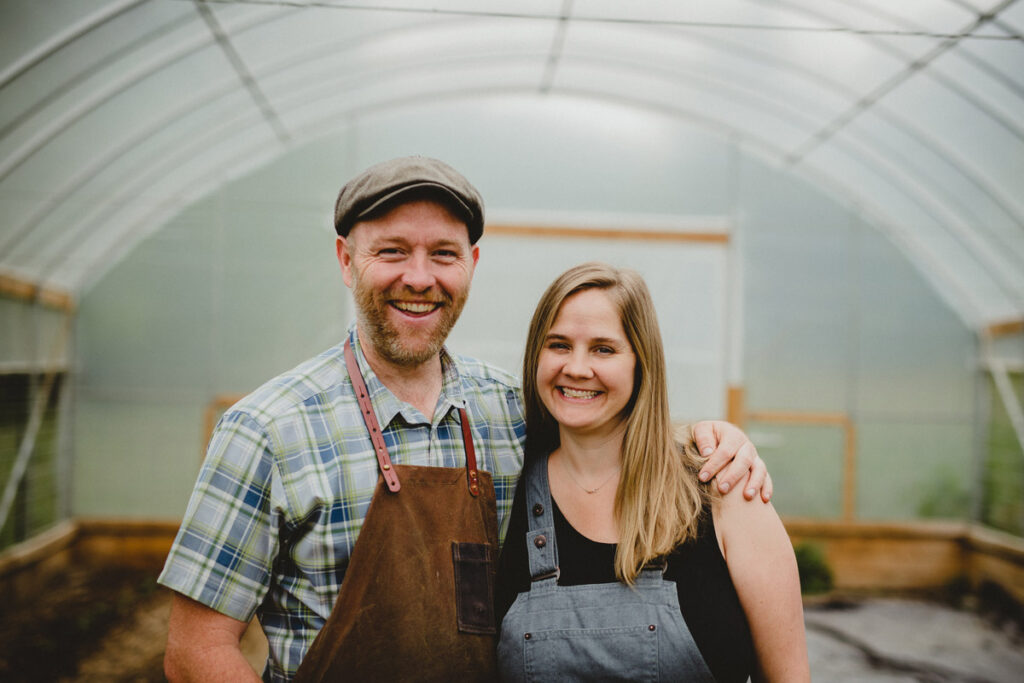
Get Kids Involved
Rebekah and Justin don’t make their kids help them in the garden, but they do require their kids to be outdoors with them while planting, working in the high tunnel, or tending to the crops.
Usually by bringing them along the kids will get interested in what’s going on and pitch in and help. Occasionally there’s one kiddo just digging in the dirt, but more times than not they end up helping with homestead chores.
One way Rebekah gives grace while gardening with children is that they plant about 20% more than they think they will need. They’ve learned that with toddlers in the garden something will get stepped on, or pulled up before it should, etc.
Rebekah shared an experience with a foster son that she and Justin had a few years back. This particular son didn’t like zucchini at all, but after growing it, harvesting it and helping prepare it, he loved it!
Sometimes getting kids involved in the process of growing and making foods they don’t enjoy gives them more of an appreciation for the work that goes into putting that food on the table and they’re more likely to eat it.
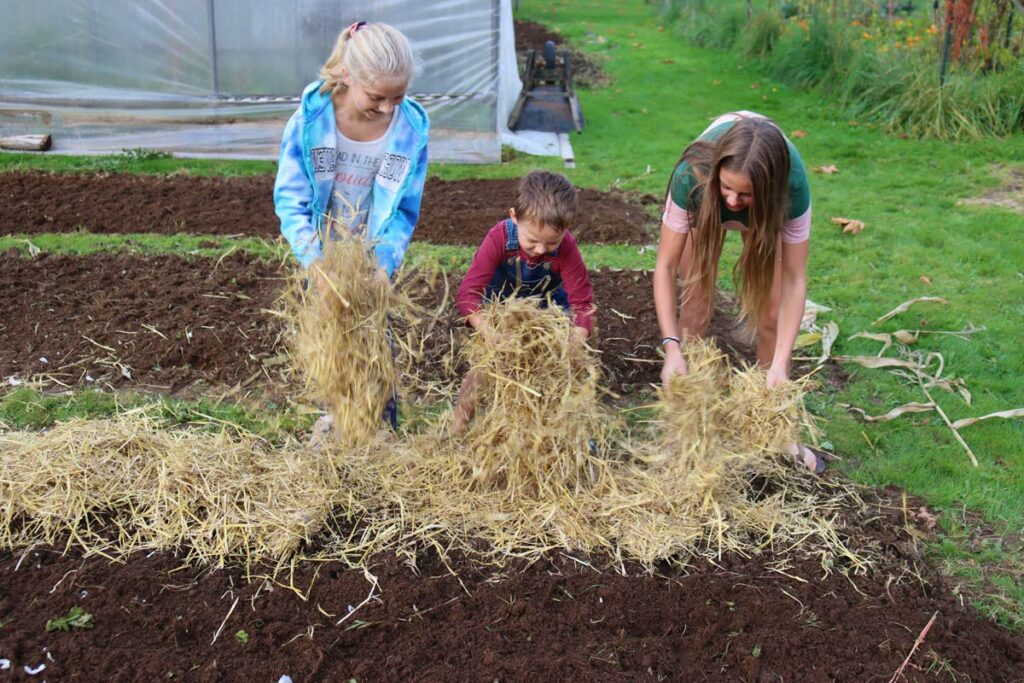
Set Kids Up For Success
You’ll start to notice that certain kids lean more toward certain activities on the homestead. One of Rebekah’s kids doesn’t enjoy gardening but really does enjoy working with the animals.
So Justin and Rebekah try to help instill the skills needed for their children to succeed when they leave home. (You may also want to read this post on homeschooling and public schooling options for homesteading families.)
With my own kids, I tend to give them the responsibility of a certain crop in the garden that they enjoy eating. This gave them a little bit more of a sense of intentionality when tending to that crop.
If you or someone you know has a special needs child, my good friend, Rachel, is sharing her tips on raising special needs children on the homestead.
Let Kids Decide
We got to talking a bit about “from scratch” eating, which is what many homesteaders tend to do when they garden and cook from scratch.
When kids get older and are learning to make their own health decisions, we both think it’s important to teach your children why we eat the way we eat, but then ultimately to let them make their own health decisions.
Rebekah shared an experience where her son chose to eat some bread that wasn’t gluten-free (Rebekah has to eat gluten-free so her children do, too), he asked if he could eat the bread and she let him make the decision.
Later that day, he wasn’t feeling the best and told her that if he had the choice again, he probably wouldn’t eat the bread.
Sometimes, letting our kids realize how different foods make them feel is the best classroom in teaching them about healthy eating.
Verse of the Week: Proverbs 28:19
[fusebox_transcript]
Interested in hearing from more homesteaders? Check out these interviews.
- The First Time Homesteader & Things I’d Do Differently
- Tips for Homesteading Off-Grid & Life w/out a Fridge or Running Water
- Creating a Homestead Business That Makes Money
- Urban Homesteading – Tips for Small Space Self-Sufficiency
- Cooking on a Wood Stove
- Biggest Homestead Mistakes We Made & What to Avoid
- What to do When Homesteading Gets Tough
- How to Buy a Homestead – What to Look For
- How to Get Everything Done in a Day Without Wasting Time or Getting Distracted
- Maximizing Your Homestead for Profit & Production (with Joel Salatin)
- A Military Wife’s Look on Homestead Preparedness
- Eating a Year of Hand Harvested Food with Alexia
- The Homestead Documentary Project
